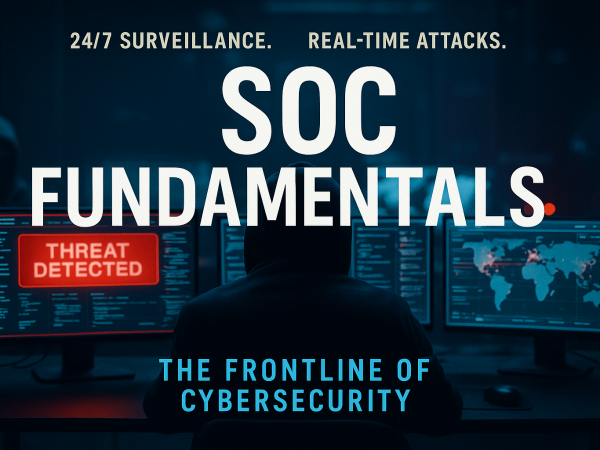Introduction
Cybersecurity is one of the fastest-growing fields in the modern era, serving as the cornerstone of protecting digital systems and networks from the increasing number of cyberattacks. This article explores the concept of cybersecurity, its various specializations, and the best pathways for those interested in entering this dynamic field.
What Is Cybersecurity?
Cybersecurity refers to a set of practices and technologies designed to protect systems, data, and networks from breaches and cyber threats.
🔍 Key Cybersecurity Roles
- SOC Analyst (Security Operations Center Analyst): Monitors systems and networks to detect security threats.
- Penetration Tester (Ethical Hacker): Simulates cyberattacks to identify vulnerabilities in systems.
- Blue Team (Defensive Team): Responsible for securing systems and fixing security flaws.
- Red Team (Offensive Team): Simulates attacks to test system defenses.
Why Is Cybersecurity in High Demand?
📊 Reasons for the Growing Need for Cybersecurity:
Reliance on Digital Systems: Banks, hospitals, and corporations now depend on digital infrastructure, requiring advanced security measures.
Increase in Cyberattacks: Many companies, including Microsoft, have faced cyber threats from advanced persistent threat (APT) groups.
Advancements in Artificial Intelligence: AI has improved hacking techniques, increasing security challenges.
Security Teams in Cybersecurity
| Team | Role | Primary Responsibilities |
|---|---|---|
| Blue Team | Defensive | Securing systems, identifying vulnerabilities, and closing security gaps. |
| Red Team | Offensive | Conducting planned attacks to test and improve security defenses. |
| Purple Team | Hybrid | Enhancing defense strategies by incorporating offensive testing techniques. |
How to Become a Cybersecurity Professional?
🛠 Essential Skills
✅ Networking & Systems: Understanding concepts like TCP/IP, DNS, VPNs, and Firewalls.
✅ Programming & Automation: Learning languages like Python and Bash for security tool development.
✅ Penetration Testing & Encryption: Using tools such as Burp Suite, Metasploit, and Wireshark.
✅ Malware Analysis: Studying how to analyze and counteract viruses and security threats.
🎓 Industry-Recognized Certifications
- CompTIA Security+ (For beginners in cybersecurity)
- Certified Ethical Hacker (CEH) (For those interested in penetration testing)
- Certified Information Systems Security Professional (CISSP) (For experienced professionals)
- Offensive Security Certified Professional (OSCP) (For advanced penetration testers)
Challenges in Cybersecurity
✔️ 🔹 Rapid Technological Changes: Professionals must engage in continuous learning to keep up with new developments.
🔹 Advanced Cyber Threats: Some cyberattacks leverage AI, making defense more complex.
🔹 Talent Shortage: The demand for cybersecurity experts far exceeds the number of qualified professionals.
The Future of Cybersecurity
🚀 The cybersecurity market is expected to grow by 15% annually, as companies increasingly rely on digital security to protect their data.
🏆 Salaries in the field are exceptionally high, especially at major tech companies like Microsoft, Google, and Amazon.
Conclusion
Without a doubt, cybersecurity is an essential field in the digital age. Whether you’re a beginner or an experienced professional, the industry offers exciting job opportunities, lucrative salaries, and challenging work for tech and security enthusiasts.
🔥 Thinking about a career in cybersecurity? Start learning the fundamentals today! 🚀



